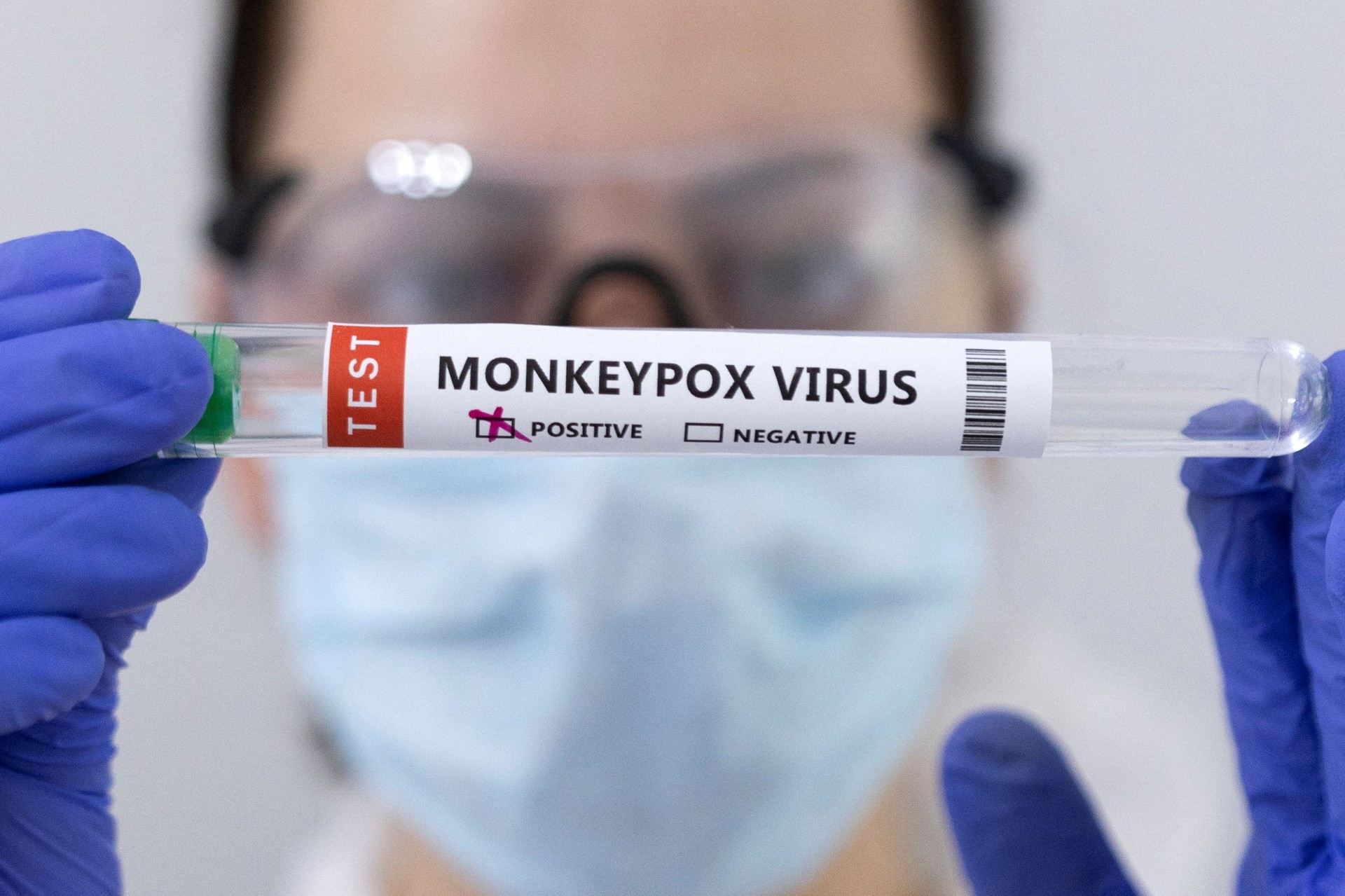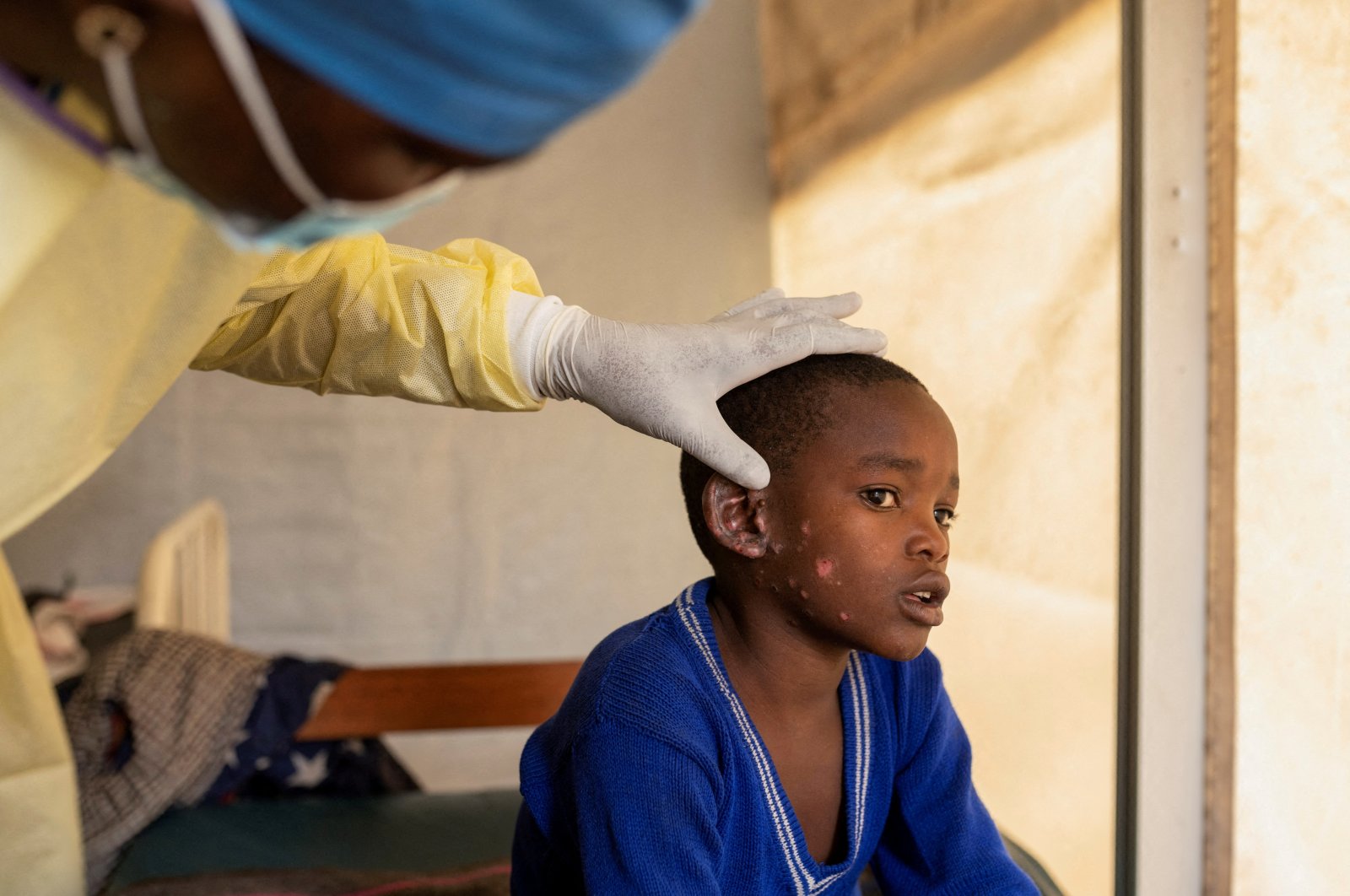Mpox confirmed in Sweden: First clade 1b variant outside Africa
Test tubes labelled "Monkeypox virus positive" are seen in this illustration taken May 23, 2022. (Reuters Photo)
August 16, 2024 10:19 AM GMT+03:00
Sweden's confirmation marks the first detection of the more dangerous Clade 1b variant of mpox outside Africa. The Swedish Public Health Agency reported that the person with mpox had recently traveled to an outbreak area in Africa.
Following Sweden, Pakistan was the next country affected by the spread of Mpox. Pakistan has detected three patients with the mpox virus, the health department in northern Khyber Pakhtunkhwa province said on Friday.
The department said that the viral infection was detected in the patients upon their arrival from the United Arab Emirates. The World Health Organization has declared a recentoutbreakof the disease as a public health emergency of international concern after a new variant of the virus has been identified.
What do we know about mpox?
- Mpox, first identified in 1958, predominantly affected people in central and West Africa until 2022, when it spread globally through sexual contact. Unlike airborne viruses, mpox requires close skin-to-skin contact, making it easier to contain with timely intervention.
- This strain has surged in the Democratic Republic of Congo since September 2023, accounting for over 96% of cases and deaths in Africa this year.
- Mpox, related to smallpox, causes symptoms ranging from mild (fever, body aches) to severe (lesions on the face, hands, and genitals).
- The World Health Organization (WHO) has declared the situation a global health emergency, raising concerns about potential international spread.
A doctor verifies the evolution of skin lesions on the ear of a boy suffering from mpox at the treatment center in Munigi, Democratic Republic of Congo, July 19, 2024. (Reuters Photo)
Global impact of mpox
- Africa has seen over 14,000 mpox cases and 524 deaths this year, a significant increase from last year.
- A new form of mpox detected in Congo can kill up to 10% of those infected and may spread more easily, particularly among children under 15.
- WHO's emergency declaration is intended to prompt international action, but the global response has been slow, with Africa struggling to access vaccines and treatments.
What will happen?
- Sweden is prepared to diagnose, isolate, and treat mpox cases. However, the European Centre for Disease Prevention and Control considers the risk to the general population very low.
- The situation in Africa, particularly in refugee camps, remains dire, with children disproportionately affected.
August 16, 2024 10:19 AM GMT+03:00

